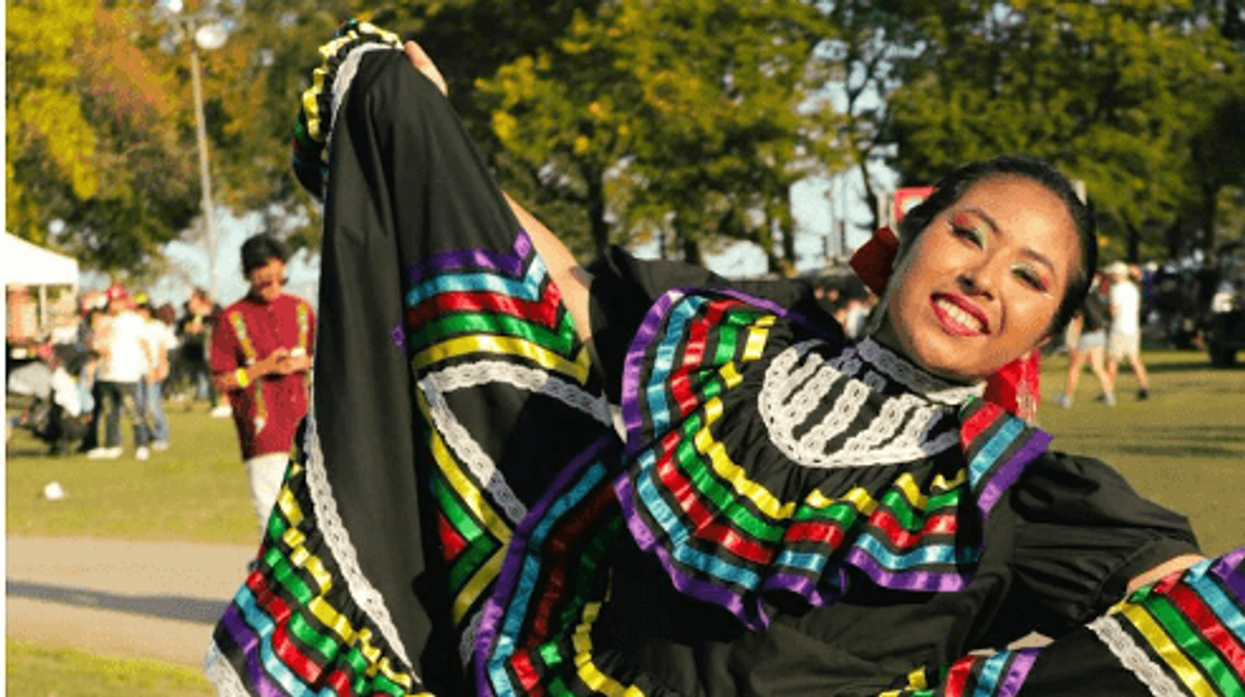Marín is the co-creator and community advocate at BECOME. Rodríguez is the co-executive director of Enlace Chicago.
The Welcoming Neighborhood Listening Initiative delves into the dynamic social landscape of Chicago’s Little Village neighborhood, exploring resident perspectives on the influx of new neighbors seeking asylum. The study moves beyond traditional data collection to activate community members as leaders in driving transformative solutions. Ultimately, the report emphasizes the importance of culturally responsive training and community dialogues to foster understanding, bridge cultural divides and build a more inclusive Little Village for all.
Chicago just marked Mexican Independence Day with a reinstated celebration of El Grito in downtown and an annual parade in La Villita, a primarily Mexican neighborhood also known as Little Village. These festivities kicked off Hispanic Heritage Month, which celebrates the independence of Mexico along with Costa Rica, El Salvador, Guatemala, Honduras, Nicaragua and Chile.
The period from Sept. 15 to Oct. 15 also acknowledges the many compatriots of Latin America who now live in the United States, wanting greater opportunity for themselves and their families. “I believe that everyone deserves an opportunity to have a better life,” said a resident of La Villita.
The theme of arriving and working towards a better life touches all immigrant groups, and it unifies Latinos across the country.
However, we are facing moments of enormous division. Over 48,000 people, mainly Venezuelans, have arrived in the city’s Latino neighborhoods since Texas began bussing people arriving at the Texas border to various cities across the United States. Little Village in Chicago has been a main placement destination for new residents. Spanish is the primary language, and the culture is familiar. However, in La Villita, as well as in other communities in Chicago, tensions have risen as established residents and new neighbors have scrambled for food pantry items, space to work as street vendors, affordable rents and available housing units.
To further understand this tension from the perspective of residents, BECOME partnered with Enlace Chicago, one of the primary community organizations and service providers in Little Village, to produce the Welcoming Neighborhood Listening Initiative. Eight long-term residents of La Villita were trained as community researchers to conduct interviews with their family members, neighbors, shopkeepers, teachers and others throughout their neighborhood. The responses captured many emotions: fear, resentment and struggle, along with hope, welcome and solidarity. In addition, new neighbors were also interviewed, along with community leaders and elected officials. “We have to understand that [our new neighbors] came to this country to make their lives better,” expressed the same La Villita resident.
In Chicago’s City Hall, the Latino and Black caucuses have clashed over the distribution of taxpayer funds to support new arrivals instead of investing in majority Black communities that have been systemically ignored. In La Villita, Mexicans and Venezuelans have clashed over cultural differences and access to resources. “It’s as if a kind of racism is being created between us Latinos, even though it’s not their fault,” said another Little Village resident about the influx of new residents from Venezuela and other parts of Latin America.
The presidential election and our political divisions are now dominating the national stage. Some appeals to Latino voters try to pit us against one another based on immigration status, how long we’ve lived in the United States and our national origins. Non-Latino immigrants are also being demonized with fear-mongering tactics. We can do better!
The wisdom of those eight community researchers of Little Village resonates at this moment. They bravely went through their own neighborhood, asking people how they felt about their new neighbors and if they believed they were part of a welcoming community. Most community members — 68 percent — said yes. As residents themselves, the researchers held back their own opinions of their changing neighborhood. As one shared, “I learned to listen and not judge. I learned to ask questions openly and not be afraid to do so.” We would do well to follow her lead.
As the weeks progress toward the election, we will be bombarded with more messages about our differences. What community members found, however, is that they are more alike than not. Regardless of national origin, how we arrived in the United States, what dialect or language we speak or what neighborhood we live in, our similarities bind us. As we celebrate this month of Latine unity and Hispanic heritage, we have an opportunity to extend that welcoming to all those who seem so different. One Little Village resident reminds us, “One change is to start from within so that we can also accept ourselves and accept other people.”



















